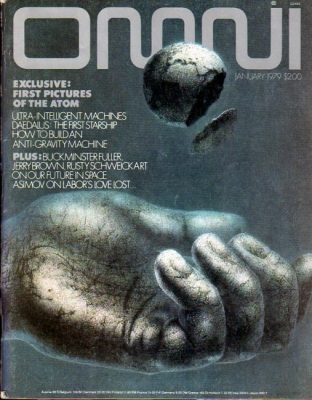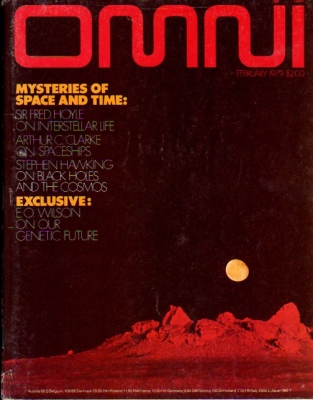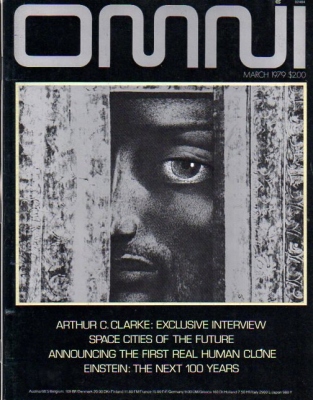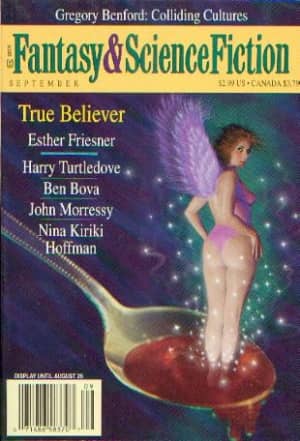The Golden Age of Science Fiction: Omni
The Balrog Award, often referred to as the coveted Balrog Award, was created by Jonathan Bacon and first conceived in issue 10/11 of his Fantasy Crossroads fanzine in 1977 and actually announced in the final issue, where he also proposed the Smitty Awards for fantasy poetry. The awards were presented for the first time at Fool-Con II at the Johnson County Community College in Overland Park, Kansas on April 1, 1979. The awards were never taken particularly seriously, even by those who won the award. The final awards were presented in 1985. The Best Professional Publication Balrog was presented each year from 1979 to 1985. Won by either Omni or F&SF from its second year to its sixth year, it was won by the book Age of Dreams, and art book by Alicia Austin in its first and J.N. Williamson’s anthology Masques in its last year.
1979 was Omni magazine’s first full year of publication. The magazine had been founded in 1978 by Bob Guccione, best known as the publisher of Penthouse, and Kathy Keeton. Omni, with a focus on science, science fiction, and the paranormal was a glossy magazine that acquired some level of prestige, in part because Guccione was able to hire Analog editor Ben Bova to co-edit the magazine, along with Frank Kendig. Keeton described the magazine as exploring “all realms of science and the paranormal, that delved into all corners of the unknown and projected some of those discoveries into fiction.””



